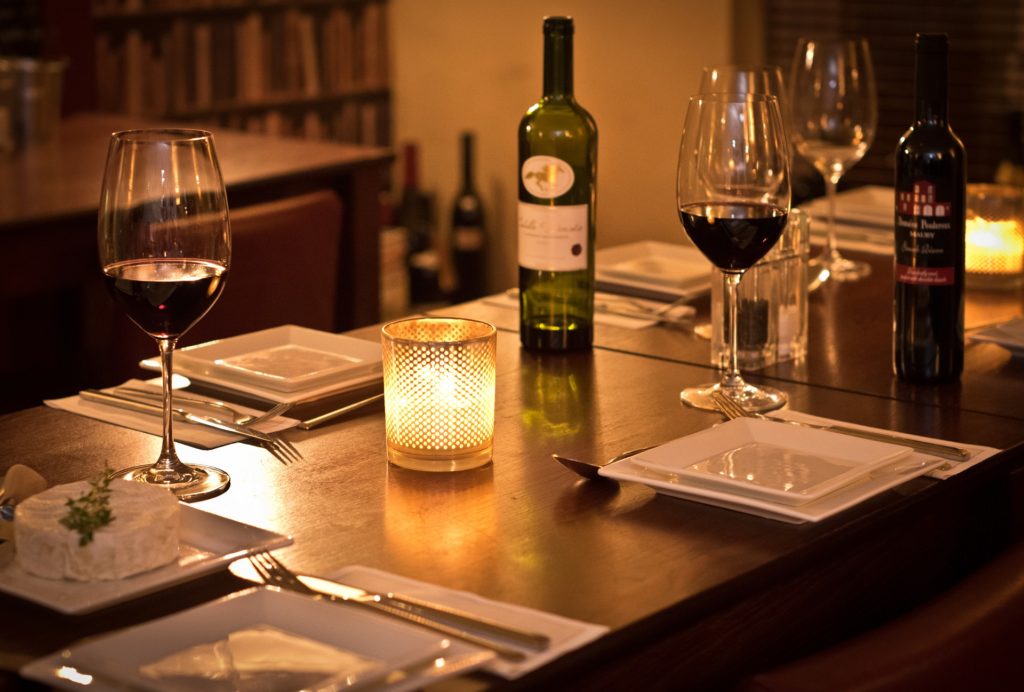
Image by Tim Bigger from Pixabay
In honor of Texas Wine month, let’s close October by celebrating Texas sommeliers and wine. Many folks don’t realize that our Texas wine region is the second largest in the U.S., right behind Napa, California. Texas expert Drew Hendricks, co-founder of the Texas Sommeliers Association offered his opinion on why it’s a promising idea to get to know the sommelier at your favorite restaurant.
It’s a special relationship we might not consider establishing; however, it transforms our dining experiences. The relationship is with an expert referred to as a sommelier or sommelière, the wine steward whose expertise helps us select the right wine to drink and often secure hard-to-obtain reservations. So, these experts can become your new BFF. However, before I share why befriending the sommelier at your local dining establishment is crucial, let me share a personal story.
Once upon a time, we were with a wine tasting group at a vineyard in the Texas Hill Country. As we were setting up for the guests, the wine bottle I was opening broke free from my grasp. The wine bottle base agonizingly thumped on the granite tabletop. All eyes were on me.
Thankfully, the winemaker kindly shared that all wine is alive – it is actually a living thing. The advice? All wine must be handled gently, the same as fine China or Waterford crystal. Thumping wine as I had unknowingly done may break the wine bottle and move sediment from the bottle bottom.
A sommelier oversees wine with care and respect. His or her role involves three key responsibilities: 1) Choosing wines for the restaurant; 2) serving wines to the customers; and 3) acting as an advocate for customers seeking lunch or dinner reservations.
Hendricks advised that the best way to begin a relationship with the sommelier is to clarify the parameters they will use when recommending a wine for you. Of course, before sharing his tips with you, I tested them.
With that tip in mind, I began my conversation by discreetly advising the wine steward how much we typically were willing to spend on a bottle of wine , what kinds of wines we like to drink and which wines we had previously experienced and not enjoyed. The wine selected for us was scrumptious and less than our price point.
Consider these points during Texas Wine Month (October) and beyond:
1. Taste testing: When the sommelier offers you the opportunity to taste the wine before pouring it for the table, it is not to check that you like it, but to ensure that the wine is in good condition and without fault. The feedback the sommelier is seeking is whether the wine is oxidized or has an unpleasant taste or smell. In related news, according to an article at cbcork.com, leading U.S. wine expert Christian Butzke, Ph.D., says that TCA, the compound responsible for the musty flavor in some wines, “is no longer a major problem for the U.S. wine industry,” and that cork taint today occurs at levels at or below 1 percent.
2. Reds with meat? Whites with seafood? Are we beyond the strict “red with meat and white with seafood” rule? Well, possibly according to Hendricks. Wine and food complement each other. However, some don’t. For example, a more tannic red wine paired with oysters, shrimp, or shellfish will cause an unfavorable physiological reaction in the form of a metallic taste. Here is just one example of how a sommelière’s expertise is invaluable.
3. No thanks! If the sommelier is pouring and you don’t want any alcohol or have had enough to drink, just say, “No, thank you.” It’s polite to avoid putting your palm over your wine glass or turning it upside down. Both are inappropriate and may cause broken glass or other poor results.
4. Tipping: Remember, it is customary to avoid tipping the sommelier separately; however, you do tip on the wine, which is 20 percent of the amount of the pretax bill, not the total check. There are no charges for sommelier services although many regular customers will give their sommelier a little something extra as a special thank you!
Do you have any wine tips or questions? We would love to hear them. Cheers!
Sharon Schweitzer, J.D., is a diversity and inclusion consultant, cross-cultural trainer, etiquette expert, and the founder of Access to Culture. In addition to her accreditation in intercultural management from the HOFSTEDE Centre, she is an attorney and mediator. Her Amazon #1 Best Selling book in International Business, Access to Asia, won a coveted Kirkus Star, and was named to Kirkus Reviews’ Best Books. She’s a winner of numerous awards, including the British Airways International Trade Award at the Greater Austin Business Awards.
#SharonSchweitzer, #AccesstoCulture, Access2Culture, #InternationalCelebration, #AccesstoAsia, #GlobalEtiquette, #Cross-CulturalTrainer, #InterculturalCommunication, #InternationalCommunication, #Interculturalist, #Etiquette, #CultureExpert, #Speaker, #KeynoteSpeaker, #CulturalIntelligence, #Culture, #Vino, #FineDining #DiningEtiquette

Leave A Comment